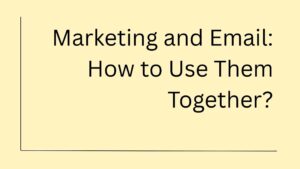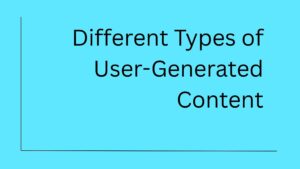If you’ve been around digital marketing for even a short while, you’ve probably heard words like keywords, keyword density, or keyword research thrown around in meetings, blog posts, and SEO tutorials. At first, these might just sound like technical jargon that SEO professionals obsess over while sipping their coffee and staring at analytics dashboards. But the truth is, they’re the foundation of search engine optimization. Without keywords, SEO wouldn’t even exist in the way we know it today.
Think about it before social media ads and all the advanced targeting tools we have today; people used search engines to figure out the best word combinations to describe what they offered to potential customers. Those combinations, or “keywords,” became the heart of online visibility and digital discovery. Even now, when strategies are more complex and involve machine learning algorithms, voice search optimization, and artificial intelligence, keywords are still the thread holding everything together. They guide what people search, how Google interprets and categorizes content, and ultimately, how businesses get found online by their ideal customers.
So yes, keywords are not just a side element or something to sprinkle randomly into your content. They’re often more important than the fancy advertising strategies you stack around them, the social media campaigns you run simultaneously, or even some of the technical optimizations that get so much attention in SEO circles.
What Are Keywords?
Keywords are simply the words and phrases people type into Google (or any other search engine like Bing, Yahoo, or DuckDuckGo) when they’re looking for something specific. They connect the searcher’s intent with your content in a way that makes your website discoverable among millions of other pages competing for attention.
When you include the right keywords in your content strategically and naturally, your chances of showing up in front of the right audience increase dramatically. For example, if you run a bakery in Chicago, using keywords like “best cupcakes in Chicago” or “custom birthday cakes Chicago” makes it easier for your local customers to actually find you when they’re searching for exactly what you offer. These location-specific, intent-driven keywords help you capture customers at the exact moment they’re looking for your services.
Search engines rely on these keywords to figure out whether your page should appear for a particular query or search phrase. It’s like giving Google a clue: “Hey, this page is about this exact topic and provides valuable information on it.” Without that clue, your content could easily get buried under thousands of unrelated results that happen to mention a few similar words but don’t actually address the searcher’s needs.
At the same time, keywords aren’t just for algorithms, they’re for people. They reflect the exact language your potential customers use when searching for information, products, or services online. That’s why they’re considered one of the most important elements in SEO, forming the bridge between what people want and what you provide.
7 Ways Keywords Are Important For Search Engine Optimization (SEO)
1. Identify and Speak the Language of the Target Market
Your audience might not describe your product or service the way you do internally within your organization. For example, a shoe retailer might use industry terminology like “athletic footwear” or “performance sneakers,” while customers simply search for “running shoes” or “comfortable gym shoes.” This disconnect between business language and customer language can cost you valuable traffic and potential sales.
Keywords help you bridge that gap by revealing the actual terms people use in real-world searches. By researching and using the terms your audience actually types into search engines, you ensure you’re speaking their language, not your internal jargon, technical specifications, or corporate terminology that nobody outside your industry understands or searches for.
2. Create Useful Content for the Target Audience
Content only works when it’s relevant to what people actually want and need. Keywords show you what people are actively searching for at any given moment, revealing their questions, concerns, and interests. If you notice a spike in searches for “eco-friendly cleaning tips” or “sustainable home cleaning products,” that’s your clue to create content around it that addresses those specific interests.
This way, your content isn’t just random blog posts or articles created because someone thought they’d be interesting; it’s mapped directly to what your audience wants, ensuring that every piece of content you create serves a genuine search demand and fills a real information gap in your market.
3. Get Content in Front of the Right People at the Right Time
Timing is everything online, especially in competitive industries where being early or relevant can make all the difference. Using seasonal or trending keywords helps you place content in front of people when they’re most likely to engage and take action. For instance, around holidays like Christmas or Mother’s Day, searches for “gift ideas,” “last-minute presents,” or “unique gifts for mom” surge dramatically.
If your content taps into those timely searches with well-researched seasonal keywords, it has a better chance of getting seen during those critical high-intent moments when people are ready to make purchasing decisions. This temporal relevance can drive significant traffic spikes that translate directly into sales or leads.
4. Communicate to Google That a Webpage is a Match for a Query
Search engines are smart and getting smarter with each algorithm update, but they still need context to understand exactly what your page offers. Keywords are that context, providing clear signals about your content’s subject matter and relevance. If someone searches “how to fix a leaking faucet,” and your blog post includes that phrase naturally in the title, headers, and throughout the content, Google recognizes it as a potential match for that specific query.
Without that signal, your content might not even be considered relevant, regardless of how helpful or well-written it actually is. Keywords act as markers that help search engine crawlers categorize and index your content appropriately within their massive databases.
5. Improve Search Engine Rankings by Helping Google Understand the Webpage
Ranking higher on Google isn’t just about backlinks from authoritative sites or technical tweaks like site speed and mobile optimization. It’s also about clarity and topical relevance. Keywords help Google understand what your page is really about, what questions it answers, and what value it provides to searchers.
The better that alignment between your keywords and your actual content quality, the higher your chances of ranking above competitors targeting the same audience with similar offerings. This understanding allows Google to confidently place your content in front of searchers who will find it most useful.
6. Drive More Qualified Traffic to Appropriate Webpages
Getting traffic is easy; you could run paid ads and bring in thousands of random visitors to your site within hours. But getting qualified traffic, meaning people who actually care about what you offer and are likely to convert into customers or engaged readers, is where keywords truly shine. A blog post optimized for “best yoga mats for beginners” is far more likely to bring in yoga enthusiasts who are genuinely interested in purchasing yoga equipment, not random browsers who clicked out of curiosity.
This targeting precision means better conversion rates, lower bounce rates, and more meaningful engagement metrics that signal to search engines that your content satisfies user intent effectively.
7. Increase Time on Site by Directing More Qualified Traffic to Webpages
When the right visitors land on your site (thanks to keyword alignment that matches their search intent), they’re more likely to stick around and explore multiple pages. If someone finds exactly what they were looking for because your keywords accurately represented your content, they’ll read your articles thoroughly, browse your product catalog, watch embedded videos, maybe even subscribe to your newsletter or make a purchase.
That longer engagement and reduced bounce rate signals to Google that your content is valuable and satisfies searcher needs, which in turn boosts your SEO rankings further. This creates a positive feedback loop where good keyword targeting leads to better user engagement, which leads to higher rankings, which brings even more qualified traffic.
How Do You Do Keyword Research for Better SEO?
Keyword research might sound intimidating if you’re new to SEO, but it’s basically about understanding what your audience is searching for and then strategically aligning your content with those search patterns.
Here’s a straightforward process to follow that anyone can implement:
Start with a brainstorm list (seed list). Write down every term people might use to find your product, service, or content. Don’t overthink this initial stage or worry about search volumes yet; just get it all out on paper or in a spreadsheet. Think about how customers describe your offerings, what problems they’re trying to solve, and what questions they ask during sales conversations.
Use a keyword research tool. Tools like Google Keyword Planner, Ahrefs, SEMrush, or free alternatives like Ubersuggest will give you real data on how often those terms are searched each month. This takes the guesswork out of the process and provides concrete numbers to base your decisions on, showing you actual search volumes, competition levels, and trends over time.
Expand and refine your list. These tools will also suggest related phrases and variations you might not have thought of initially. For example, searching for “digital marketing” might reveal popular variations like “digital marketing strategy,” “digital marketing tips for small business,” or “digital marketing courses online.” These related keywords often represent untapped opportunities with less competition but strong search intent.
Verify the keywords through manual searches. Search them yourself on Google and look at the competition in the actual search results. If the top-ranking results are similar to what you offer and target a comparable audience, you’re on the right track. If not, you may need to adjust your keywords to find terms where you can realistically compete and provide value that differentiates you from existing results.
The key here is balance between search volume and competition. Go for terms that people search often enough to matter and drive meaningful traffic, but not so competitive that you’ll never rank without massive authority and backlink profiles that take years to build.
Understanding Keyword Intent for Maximum Impact
Beyond just finding keywords, understanding the intent behind them makes your SEO strategy far more effective. Search intent generally falls into four categories: informational (learning something), navigational (finding a specific site), commercial (researching before buying), and transactional (ready to purchase).
Matching your content to the right intent ensures you’re not just getting traffic, but traffic that converts. Someone searching “what is SEO” has informational intent and probably isn’t ready to hire an agency yet. But someone searching “best SEO agency near me” has transactional intent and is actively looking to make a decision.
Understanding these nuances helps you create content that serves each stage of the customer journey, from initial awareness through final purchase decision.
Final Thoughts
Keywords are not the whole of SEO, but they are its backbone and foundation. Without them, even the best-written content with stunning design and perfect technical optimization struggles to get discovered by the people who need it most. They guide your content strategy, connect you with your target audience at critical moments, and signal relevance to search engines in ways that determine your visibility.
So if you’ve been overlooking keywords or treating them as an afterthought in your content creation process, maybe it’s time to step back and rethink your approach. Because no matter how much SEO evolves with new technologies like AI-generated content, voice search, or visual search, the importance of keywords isn’t going anywhere anytime soon. They remain the fundamental connection between what people want and what you provide.

The Chief Author and Editor at Intothecommerce. As a seasoned expert in digital marketing, I direct the site’s strategic content and ensure every piece meets the highest industry standards. My insights drive our coverage on SEO, paid media, and cutting-edge marketing technology.




